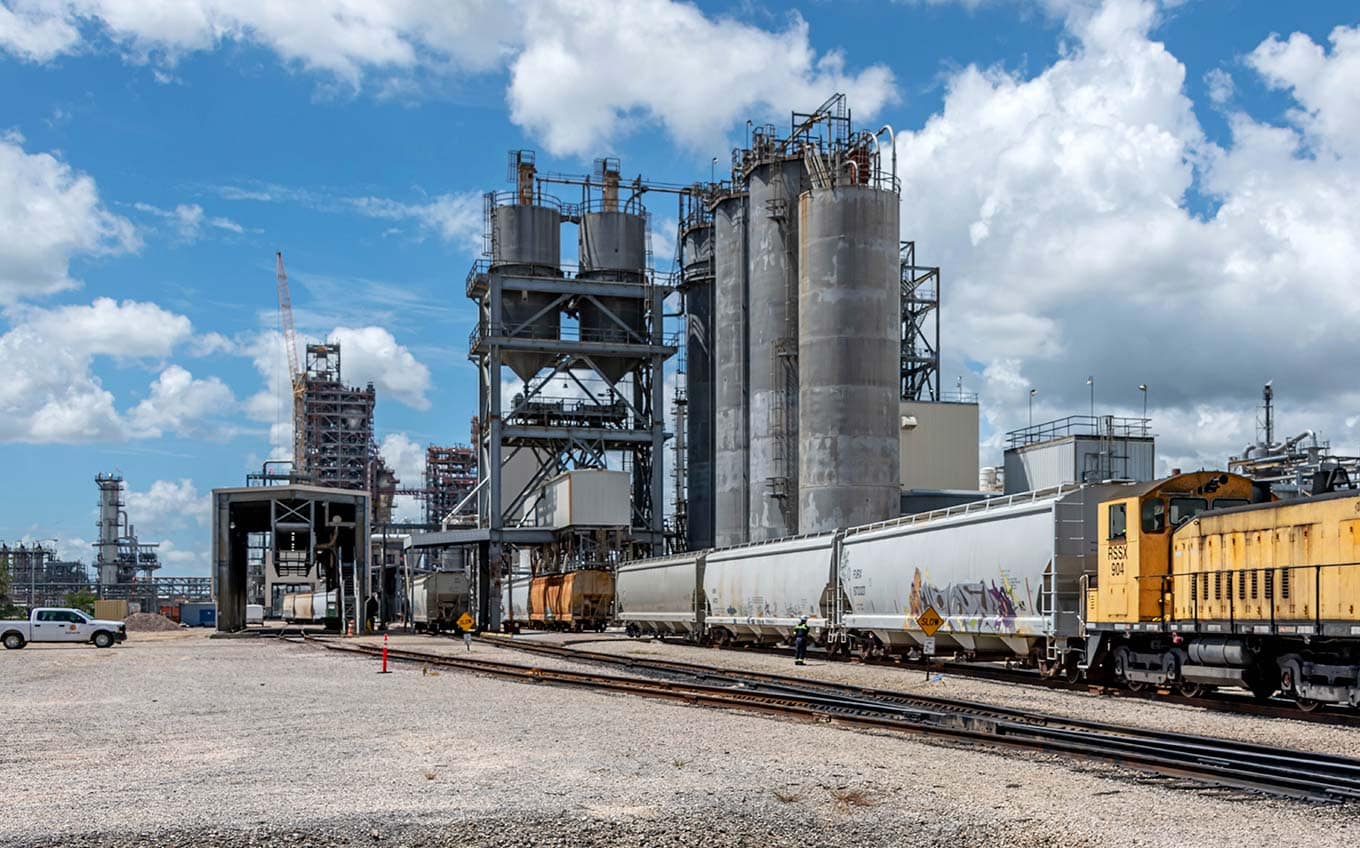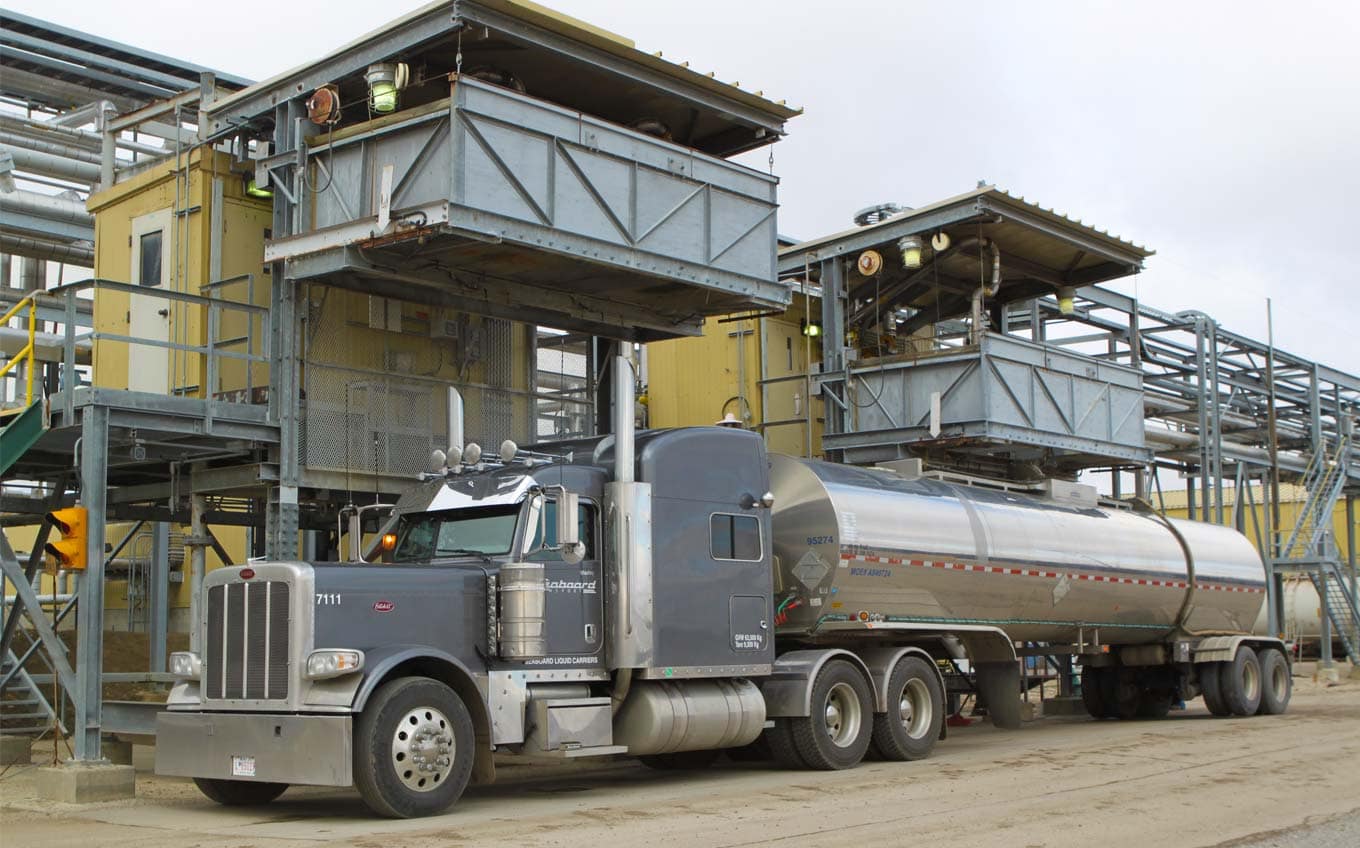A transload operator, also known as a transloading operator, is a company or organization that provides transloading services. Transloading is a term used for the process of transferring raw materials or cargo from one mode of transportation to another. It involves moving goods from a truck or a railcar to a ship or vice versa, without storing the goods at the transloading facility.
A transload operator typically works in transloading facilities or terminals. Terminals are strategically located at transportation hubs such as ports, rail yards, or intermodal facilities. Equipped with the necessary infrastructure, equipment, and storage space, the facilities ease the transfer of goods between different modes of transportation.
The responsibilities of a transload operator may include:
- Receiving goods from one mode of transportation, such as a railcar, ship, or truck.
- Unloading or offloading the goods from the incoming mode of transportation.
- The temporary storage of the goods at the transloading facility if necessary.
- Loading the goods onto another mode of transportation, such as a different railcar, barge, ship, or truck.
- Ensuring the safe and proper handling, documentation, and security of the goods during the transfer process.
- Coordinating with transportation companies, shippers, and other stakeholders involved in the supply chain.
Advantages of Transload Operators
Transloading services provided by transload operators offer several advantages to businesses. For instance, it allows companies to optimize their transportation logistics by using different modes of transportation based on efficiency, cost, and geographical factors. In addition, transloading can help reduce transportation costs, increase flexibility in shipping routes, and improve overall supply chain efficiency.
What kind of materials are transferred?
Specific types of commodities or raw materials transloaded can vary significantly. It often depends on the location, industry, and transportation networks involved. However, here are some common examples:
Bulk materials
Commodities include coal, grain, ores, aggregates, fertilizers, and other similar products. These materials are typically transported in large quantities via railcars or barges. An operator then transfers the material to other modes of transportation or storage facilities.
Petroleum products
Transload Operators can handle oil and gas products like crude, gasoline, diesel, and more. These products may be transferred between barges, railcars, trucks, or storage tanks.
Chemicals
Specialized tanks or containers store various chemicals during the transloading process. Chemicals may include industrial chemicals, solvents, and acids. These are substances that need specific handling procedures and equipment to ensure safety.
Construction materials
Operators transload construction materials like lumber, steel, bricks, and other building supplies. These materials are commonly unloaded from ships or railcars.
Food products
Some transloading facilities handle food products. Perishable or non-perishable food items include grains, flour, sugar, oils, beverages, and more. Food items may need special conditions, like temperature-controlled areas or sanitary handling procedures.
Consumer goods
Transload operators may handle electronics, appliances, clothing, furniture, and more goods. The handler will typically unload these goods from shipping containers or railcars and load them onto trucks for distribution to retail locations.
Hazardous materials
Certain transloading facilities are equipped to handle hazardous materials. Hazardous materials can include chemicals, radioactive materials, or flammable substances. Because these materials are hazardous, operators must adhere to strict safety regulations. Specialized equipment, training, and storage areas help to ensure proper handling and safety.
It’s important to note that the specific commodities, conditions, and regulations vary significantly. Each industrial operation will have its unique supply chain logistical requirements. Consulting a transloading or industry expert for detailed information is advisable when transferring any materials that could be deemed hazardous.
A Simple Solution for Moving Freight
As a transloading specialist, Railserve provides safe and comprehensive solutions for your material handling needs. Our services enable companies to maximize efficiency, capacity, and safety while maintaining control of costs and liability.
Railserve also provides railcar switching, material handling, and other related services inside a variety of industrial plants, ports, and terminals. Types of industry include Agriculture, Chemicals, Energy and Petroleum, Manufacturing, Pulp and Paper, and more. We provide services honed by industry best practices and detailed procedures with a heavy focus on safety. Our services also include personnel, training, certain types of equipment, reporting, and insurance.
At Railserve, safety is our primary concern. We develop proprietary safety methods, training, and technology. As a result, Railserve creates a safer work environment for employees, clients, and the public. Our safety record is outstanding, with rates well below the OSHA average. Learn more about what makes Railserve different
Benefits of working with Railserve include:
- Achieving peak efficiency
- Safe work environment
- Greater plant capacity
- Regulatory compliance
- Cost control (with possible savings)
Let Us Help with Your Transloading Process
If your company supply chain requires a transloading operatoration, we hope you’ll contact us to discuss your specific needs or to request a proposal. Call 1.800.345.7245
For transloader job opportunities, please see our career page.


